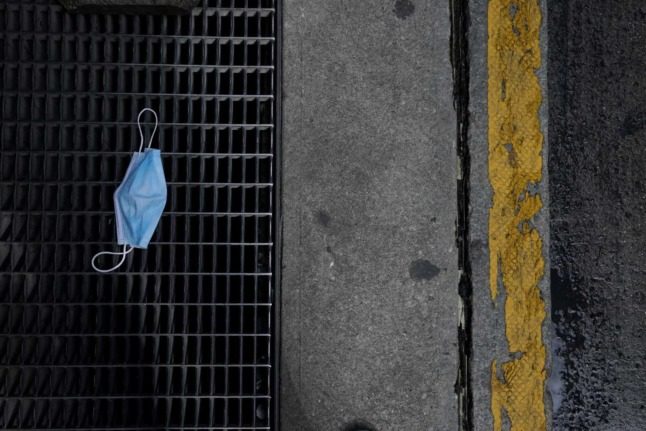The Federal Council will announce its decision this afternoon about which coronavirus measures should be further relaxed, with the changes expected to come into place from June 28th.
The restrictions that the government would relax include upping the number of people allowed to gather together in and outdoors, permitting more people to sit at tables inside restaurants as well as on terraces, and lifting of mask requirements for outdoors.
Vaccinated tourists from third nations will also be allowed to come to Switzerland from next Wednesday.
Authorities have previously said these restrictions will be relaxed if the epidemiological situation and outlook remain good.
Here’s what you need to know.
Mask rules to be lifted outdoors, in the workplace and at high schools
From June 28th, masks will no longer be required in busy, publicly accessible outdoor areas.
Masks are currently required outdoors in bus stops, train stations, leisure facilities and on chair lifts.
Masks will also no longer be required in the workplace.
READ MORE: Switzerland to lift mask requirement in outdoor areas from June 28th
However, mask rules will remain in place where staff interact with customers, i.e. in retail outlets and restaurants.
Masks will also no longer be federally required in grammar schools, technical secondary schools and vocational schools.
However, the Federal Council indicated that some cantons may continue the existing mask rules in educational institutions.
Pubs and restaurants
Capacity restrictions will be loosened at pubs and restaurants.
While the number of people per table will be raised from four to six, outdoor tables will no longer have an upper limit.
Rules for mandatory seating will also be lifted in outdoor areas, meaning that people will again be able to drink while standing and move around.
Pubs and restaurants will still be required to collect contact details and everyone moving around inside will still need to wear a mask.
Nightclubs and discos open to those with Covid certificates
Nightclubs and discos will again be allowed to open, although entry will be restricted to those with covid certificates.
As reported by The Local Switzerland last week, nightclubs are classified as ‘red’ under Switzerland’s covid certificate rules – which means only those who have tested negative, been vaccinated or recovered from the virus will be allowed to attend.
Attendees must demonstrate compliance by bringing a Covid certificate. Click the link below for more information.
READ MORE: What will Switzerland’s Covid-19 pass allow you to do?
A maximum of 250 people will be allowed to attend, but masks will not be required provided.
Venues must collect contact details.
Events to be allowed again
The rules relating to events will also be relaxed. Up to 1000 people can take part in an event without a covid certificate if they are seated, while the maximum for standing events will be 250 people.
These limits apply both indoors and outdoors.
Private events can take place without masks with a max of 30 people (indoors) and 50 people (outdoors).
Sport
Capacity restrictions on outdoor and indoor sport will be wound back, while indoor sports will still be required to have masks provided distance cannot be kept.
Travel
Quarantine requirements and other entry restrictions will be completely dropped for people entering from the Schengen area.
Only countries in the Schengen region which have a high prevalence of Covid mutations would face entry restrictions. As at June 23rd, this includes Brazil, Canada, India, South Africa, Nepal, and the UK.
From outside the Schengen zone, Switzerland is set to open up to vaccinated travellers.
This includes people from the United States.
“In view of the positive developments in the epidemiological situation and the progress made in the field of vaccination, the Federal Council is proposing to greatly relax the prescriptions and health measures at the border for people entering Switzerland”, authorities said.
This means not only that there would no longer be any testing or quarantine requirements for vaccinated arrivals for citizens of Schengen area states, but also for those coming from third nations, that is, countries outside the EU / EFLA.
Filling out the passenger locator form will still be obligatory for all passengers arriving by air, but not for those using land transportation.
More information is available at the following link.
READ MORE: Switzerland set to reopen its borders to vaccinated travellers, including Americans



 Please whitelist us to continue reading.
Please whitelist us to continue reading.
Member comments